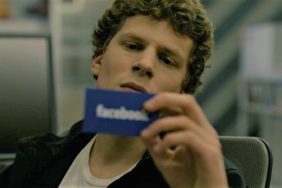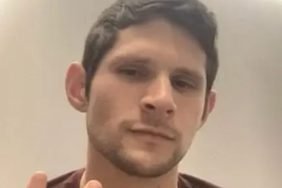Mark Zuckerberg set up a Q&A session on – you guessed it – Facebook yesterday, and proceeded to field a number of questions from the likes of Stephen Hawking, Arnold Schwarzenegger and Arianna Huffington.
During the enlightening session, the Facebook creator offered his opinion on everything from Facebook’s impact upon the news, to the future of artificial intelligence and his belief that we will some day be able to share our thoughts and emotional experiences in full through the power of virtual reality. Trippy.
Check out his answers below:
Arnold Schwarzenegger (actor and star of Terminator Genisys): Mark, I always tell people that nobody is too busy to exercise, especially if Popes and Presidents find time. You’ve got to be one of the busiest guys on the planet, and younger generations can probably relate to you more than they can the Pope – so tell me how you find time to train and what is your regimen like?
Mark Zuckerberg: Staying in shape is very important. Doing anything well requires energy, and you just have a lot more energy when you’re fit. I make sure I work out at least three times a week — usually first thing when I wake up. I also try to take my dog running whenever I can, which has the added bonus of being hilarious because that basically like seeing a mop run.
And no, the machines don’t win.
Stephen Hawking (theoretical physicist, all-around genius): I would like to know a unified theory of gravity and the other forces. Which of the big questions in science would you like to know the answer to and why?
Zuckerberg: That’s a pretty good one! I’m most interested in questions about people. What will enable us to live forever? How do we cure all diseases? How does the brain work? How does learning work and how we can empower humans to learn a million times more? I’m also curious about whether there is a fundamental mathematical law underlying human social relationships that governs the balance of who and what we all care about. I bet there is.
Jeff Jarvis (journalist, author of What Would Google Do?): What do you think Facebook’s role is in news? I’m delighted to see Instant Articles and that it includes a business model to help support good journalism. What’s next?
Zuckerberg: People discover and read a lot of news content on Facebook, so we spend a lot of time making this experience as good as possible.
One of the biggest issues today is just that reading news is slow. If you’re using our mobile app and you tap on a photo, it typically loads immediately. But if you tap on a news link, since that content isn’t stored on Facebook and you have to download it from elsewhere, it can take 10+ seconds to load. People don’t want to wait that long, so a lot of people abandon news before it has loaded or just don’t even bother tapping on things in the first place, even if they wanted to read them.
That’s easy to solve, and we’re working on it with Instant Articles. When news is as fast as everything else on Facebook, people will naturally read a lot more news. That will be good for helping people be more informed about the world, and it will be good for the news ecosystem because it will deliver more traffic.
It’s important to keep in mind that Instant Articles isn’t a change we make by ourselves. We can release the format, but it will take a while for most publishers to adopt it. So when you ask about the “next thing”, it really is getting Instant Articles fully rolled out and making it the primary news experience people have.
Arianna Huffington (co-founder of The Huffington Post): Facebook has played a huge role in the digital publishing industry over the past few years. Based on everything you’ve learned, how do you think the way journalists and news organizations present their stories online will evolve over the next few years? And what types of products are you focused on in this space?
Zuckerberg: I think there will be a couple of trends towards richness and speed / frequency.
On richness, we’re seeing more and more rich content online. Instead of just text and photos, we’re now seeing more and more videos. This will continue into the future and we’ll see more immersive content like VR. For now though, making sure news organizations are delivering increasingly rich content is important and it’s what people want.
On speed / frequency, traditional news is thoroughly vetted but this model has a hard time keeping us with important things happening constantly. There’s an important place for news organizations that can deliver smaller bits of news faster and more frequently in pieces. This won’t replace the longer and more researched work, and I’m not sure anyone has fully nailed this yet.
Marcel Rukeltukel: Whats going on with Facebook in the future?
Zuckerberg: There are a few important trends in human communication that we hope to improve.
First, people are gaining the power to share in richer and richer ways. We used to just share in text, and now we post mainly with photos. In the future video will be even more important than photos. After that, immersive experiences like VR will become the norm. And after that, we’ll have the power to share our full sensory and emotional experience with people whenever we’d like.
Second, people are gaining the power to communicate more frequently. We used to have to be with someone in person. Then we had these bulky computers at our desks or that we could carry around. Now we have these incredible devices in our pockets all the time, but we only use them periodically throughout the day. In the future, we’ll have AR and other devices that we can wear almost all the time to improve our experience and communication.
One day, I believe we’ll be able to send full rich thoughts to each other directly using technology. You’ll just be able to think of something and your friends will immediately be able to experience it too if you’d like. This would be the ultimate communication technology.
Our lives improve as our communication tools get better in many ways. We can build richer relationships with the people we love and care about. We know about what’s going on in the world and can make better decisions in our jobs and lives. We are also more informed and can make better decisions collectively as a society. This increase in the power people have to share is one of the major forces driving the world today.

Alex Kantrowitz: Hi Mark, you made a tool to let everyone put rainbow flags over their profile pictures, but you also insist on having people use their real names on Facebook. Many people in the trans community consider this discriminatory and even argue it puts their lives at risk. Are you going to end the practice?
Zuckerberg: This is an important question. Real names are an important part of how our community works for a couple of reasons.
First, it helps keep people safe. We know that people are much less likely to try to act abusively towards other members of our community when they’re using their real names. There are plenty of cases — for example, a woman leaving an abusive relationship and trying to avoid her violent ex-husband — where preventing the ex-husband from creating profiles with fake names and harassing her is important. As long as he’s using his real name, she can easily block him.
Second, real names help make the service easier to use. People use Facebook to look up friends and people they meet all the time. This is easy because you can just type their name into search and find them. This becomes much harder if people don’t use their real names.
That said, there is some confusion about what our policy actually is. Real name does not mean your legal name. Your real name is whatever you go by and what your friends call you. If your friends all call you by a nickname and you want to use that name on Facebook, you should be able to do that. In this way, we should be able to support everyone using their own real names, including everyone in the transgender community. We are working on better and more ways for people to show us what their real name is so we can both keep this policy which protects so many people in our community while also serving the transgender community.
Joe Byer: Why did you choose to set your salary at $1?
Zuckerberg: I’ve made enough money. At this point, I’m just focused on making sure I do the most possible good with what I have. The main way I can help is through Facebook — giving people the power to share and connecting the world. I’m also focusing on my education and health philanthropy work outside of Facebook as well.
Too many people die unnecessarily and don’t get the opportunities they deserve. There are lots of things in the world that need to get fixed and I’m just lucky to have the chance to work on fixing some of them.
Jenni Moore: in 10 years time what’s your view on the world where do you think we all will be from a technology perspective and social media?
Zuckerberg: In 10 years, I hope we’ve improved a lot of how the world connects. We’re doing a few big things:
First, we’re working on spreading internet access around the world through Internet.org. This is the most basic tool people need to get the benefits of the internet — jobs, education, communication, etc. Today, almost 2/3 of the world has no internet access. In the next 10 years, Internet.org has the potential to help connect hundreds of millions or billions of people who do not have access to the internet today.
As a side point, research has found that for every 10 people who gain access to the internet, about 1 person is raised out of poverty. So if we can connect the 4 billion people in the world who are unconnected, we can potentially raise 400 million people out of poverty. That’s perhaps one of the greatest things we can do in the world.
Second, we’re working on AI because we think more intelligent services will be much more useful for you to use. For example, if we had computers that could understand the meaning of the posts in News Feed and show you more things you’re interested in, that would be pretty amazing. Similarly, if we could build computers that could understand what’s in an image and could tell a blind person who otherwise couldn’t see that image, that would be pretty amazing as well. This is all within our reach and I hope we can deliver it in the next 10 years.
Third, we’re working on VR because I think it’s the next major computing and communication platform after phones. In the future we’ll probably still carry phones in our pockets, but I think we’ll also have glasses on our faces that can help us out throughout the day and give us the ability to share our experiences with those we love in completely immersive and new ways that aren’t possible today.
Those are just three of the things we’re working on for the next 10 years. I’m pretty excited about the future.
Miller Savetz: Why did you come up with Poking?
Zuckerberg: It seemed like a good idea at the time.
Photos: Getty Images






